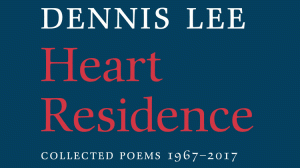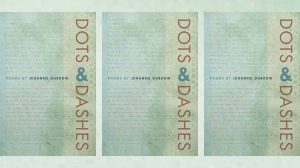
Filthy Labors by Lauren Marie Schmidt / Curbstone Books / ISBN: 978-0810134690 / 104 pages / 2017
I was nursing another cold Peroni at a wobbly table at the Bowery Poetry Club when I first heard Lauren Marie Schmidt read “In Defense of Poetry,” the lead-off poem in her third collection, Filthy Labors. The turn on that free verse sonnet whipped me right out of my boozy stupor. Published this spring by Northwestern University Press, Filthy Labors brings news from the class war front, where Schmidt dared to teach poetry at the Haven House for Homeless Women and Children.
“In Defense…” brings us to the field of action. First, we have the finger-wagging supervisors who admonish her that “poetry is a waste of ten homeless mothers’ time–.” What they need is practical stuff like grammar and spelling and lessons on how to speak good English (i.e., talk white). Anyone who has tried to teach literature to inner city kids (as I have) has heard the same refrain. But few if any have had this poet’s comeback:
I say
you’ve never seen these women lower their noses
over poetry, as if praying the rosary, as if hoping
for a lover to slip his tongue between their lips,
or sip a thin spring of water from a fountain.
I don’t know whether or not she kept her job, but lines like these are worth the cost of a few paychecks. Clearly, Schmidt does not play it safe in life or in literature. Dedicated to the women at Haven House, Filthy Labors features nine sections titled after the Catholic sacraments, though this is no book of wholesome Christian verse. In the section called “Communion,” the poem titled “Cloistered” begins, “There are no men in the Haven House.” It goes on to tell what happened when the narrator asked the women to “Write a poem about a body you know.” Shauna writes:
of the night she made her way into a bedroom
down the hall, and reads aloud her poemabout the dark vinegar of another woman’s
menstruation on her mouth, the tang of thatfirst forbidden taste….
In the Judeo-Christian tradition, menstrual blood and homosexuality are, to say the least, problematic. Schmidt frames her entire book around the sacraments and offers no apology or explanation for doing so. That’s risky business in a twenty-first-century poetry market dominated by secular humanism. Through the overt Catholic references and blasphemous sexual imagery, Schmidt wantonly commits both secular and religious heresy. Wanton, but not gratuitous. Through this mash-up of image and diction, Schmidt ratchets up the tension between the faith of her fathers and the hypocrisy and racism she witnessed every day.
Schmidt also uses this fusion of the sacred and profane to undress the myth of the American family in poems about her own family. But while you won’t find soft-focus nostalgia in these pieces, you won’t find bitterness, either. Instead, they celebrate the kind of earthy, bodily intimacy that is the private lives of families. In the section called “Baptism,” the poem titled “The Box Marked ‘F’” opens with her brother nonchalantly changing her infant nephew, the first stanzas reveling in all the scene’s scatological glory. Then the narrator comments:
Your indifference to shit is no surprise to me,
Brother, for you have always been crude
and flatulent, unapologetic for either,but, as you toss the fresh-wipe away, you say
it’s going to be my responsibility to clean
our parents’ messes when they’re old.Though it will be years before our parents need wiping,
you were much too quick to assign the filthy labor to me,
the only daughter, the only box marked “F,”
The intimacy of the scene, the presence of the infant and the second person address make it a love poem to her brother, but without the sap. You know these two fought like cats and dogs as kids, and so their presence together in this small domestic moment bespeaks the tensile strength of a bond that they both have surely tested. Only a real poet can make a feminist critique of her own family while still revealing the love that binds her to it.

The section “Confirmation” contains some of the less satisfying poems, several of which are informed by a dogmatic atheism. The title fits, though. The sacrament of Confirmation marks the passage into adulthood with its knowledge of life and death and independence from parents, divine and earthly.
In that section, “Before Grief” muses on the life of the poet’s “Googlegänger,” a Lauren Schmidt from Dubuque, Iowa, who died in car crash shortly before graduating high school. The narrator imagines the scene when Lauren’s family first gets word of her death:
They are asking all the Why
no God exists, that the possibility of this earth,
their lives, mine, were no more divineintention than the moment the driver’s eyes dropped
from the road like the sun from the sky
two hours too soon this time of year.
The lines are poignant but marked by a standard-issue nihilism that no longer shocks. Schmidt is a rebel, maybe even an anarchist, but not a nihilist. She believes in love, a truly disruptive faith in our nihilistic age. She draws her poetic spirit from that great lover and pantheist, Walt Whitman, whom she claims as a foundational influence. And it shows. In fact, I would say that Filthy Labors is a book of love poems. Love poems to the family that taught her how to love. And most of all, love poems to the women of Haven House, whose courage gave her the inspiration to write some breathtaking lines. “Brittany’s Tattoo,” my favorite poem in the collection, tells us:
Her tattoo is no stone-cold Lady Justice–
tattered blindfold, sword, scales in balance–just the ink-black cursive word
Justice cutting over the upwardthrust of her jugular–
from her throat to the jug bandof her heart to the ovation
of her brain stretches that thin, blue tether.Only Justice
because when Brittany needs to believe
the word’s wine-red truth, she pressesthat wormy vein to feel blood
thunder beneath her fingers.
Blood and thunder. Brittany’s simple gesture reveals the grand, big-hearted hope of a woman for whom hope is a dangerous thing. It is the same hope Martin Luther King voiced in his “I Have a Dream” speech. Summoning the words of the Old Testament prophet Amos, King declared, “we…will not be satisfied until justice rolls down like water and righteousness like a mighty stream” (italics mine).
Whether expressed in great rhetoric or on black skin, hope against the seemingly intractable injustice faced by both Brittany and King takes a vulnerable heart, and vulnerability takes courage. Loving these women and singing their song takes the same. In our virulently partisan times, love and hope may be the most dangerous things a twenty-first-century American poet can write about.
In the news and across social media, you hear plenty of contempt for the top one-percent, but where is the love for the bottom one-percent? You will find it here, in Filthy Labors. True to Whitman, Schmidt’s poetry expresses an all-embracing, generous, boldly truthful sensibility. Love never makes the Times or Twitter, yet it blossoms everywhere as unremarked as dandelions along the interstate. Filthy Labors sings out of love. Even if only for a brief moment, its song drowns out the vitriolic cacophony twittering all around us.




Paida Bingwa says
This book sounds like it is absolutely beautiful.
Sam Silva says
sounds like a daring book!